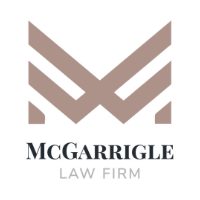Cheyney White Collar Crime Lawyer, Pennsylvania
Sponsored Law Firm
-
 x
x

Click For More Info:
-
Ciccarelli Law Offices
Numerous Office Locations Available» view mapCriminal Defense Success Is Our Mission
You gain the resources of a Team with 100 years of combined experience fighting for their clients throughout Pennsylvania.
888-240-0896
Daniel McGarrigle
✓ VERIFIEDMilitary & Veterans Appeals, White Collar Crime, DUI-DWI, Criminal
Attorney Daniel McGarrigle is an aggressive advocate and experienced litigator; he has tried hundreds of cases and handled all types of criminal matte... (more)
FREE CONSULTATION
CONTACTAlyssa Kusturiss Poole
Wills & Probate, White Collar Crime, Criminal, Corporate, Personal Injury
Status: In Good Standing Licensed: 21 Years
Arik T. Benari
DUI-DWI, White Collar Crime, Misdemeanor, Felony
Status: In Good Standing Licensed: 24 Years
FREE CONSULTATION
CONTACTArthur T. Donato
White Collar Crime, Criminal, Civil Rights, Administrative Law, Business
Status: In Good Standing Licensed: 44 Years
Arthur T. Donato
Civil Rights, White Collar Crime, Administrative Law, Criminal, Business
Status: In Good Standing
Ashly Ryan McGarity
Visa, DUI-DWI, Domestic Violence & Neglect, Firearms, White Collar Crime
Status: In Good Standing
David Michael Iannucci
Internet, White Collar Crime, Criminal, Corporate
Status: In Good Standing Licensed: 17 Years
Dietrich Peter Epperson
White Collar Crime, DUI-DWI, Criminal, Business
Status: In Good Standing Licensed: 18 Years
 Lee Ciccarelli West Chester, PA
Lee Ciccarelli West Chester, PA AboutCiccarelli Law Offices
AboutCiccarelli Law Offices Practice AreasSpecializations
Practice AreasSpecializations

